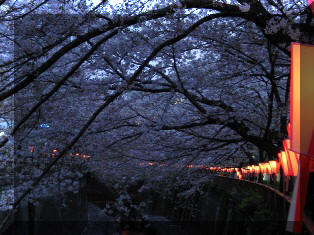

J-Pop Exchange Exclusive Interview with Kenji Kawai
Kenji Kawai
J-Pop Exchange Radio Show Exclusive Interview
Transcript
SeanBird
(J-Pop Exchange): Hi, thank
you for taking the time to speak with us…
Kenji Kawai: I am very happy to
have this chance to be interviewed on this program, thank you.
SeanBird: Did your interest in
music begin in your childhood? How did you become interested in
music?
Kenji Kawai: Yes.
I have been interested in
music since I was a child.
My father loved to listen to movie soundtracks,
and I listened together with him all the time.
In that way, I was influenced by my father’s taste in music.
SeanBird: Please tell us about
your musical studies and training.
Kenji Kawai: I didn't really
study music. For a
limited period of time, I was a student of a music school. But I was
too busy hanging around with girls... what a shame... as a result I
quit that school in half a year.
SeanBird: Who are your musical
influences, what music do you like to listen to?
Kenji Kawai: The artist I am most
influenced by is Burt Bacharach.
There are a lot of artists I've been influenced
by: Burt Bacharach, Carole King, Quincy Jones, Earth, Wind & Fire,
Santana, Lee Ritenour, Dave Grusin, and a lot more!
And I love each and every one
of these artist even today!!
SeanBird: How and when did you
decide to pursue a career in music? Was it always your intention to
pursue a career in music?
Kenji Kawai: When I was young, I
never thought about becoming an artist or song writer.
I majored in Nuclear Engineering at a university, but I
realized that the classes were too difficult for me to follow, and I
quit the school in a year and a half.
Feeling sorry for my parents, I started thinking about
becoming a music teacher.
A little while later, I became a student of a music school. —
Though, I was too busy thinking about girls (as I already mentioned
previously), and this time I quit the school in 6 months.
At the same time, I found a poster advertising a band
competition at the rehearsal studio where my band often practiced,
and we became one of the contestants.
Luckily, we won that competition!
After that, I started to get more chances to work on band
projects. Again my dream
changed, and my goal became to develop into a studio musician like
Lee Ritenour. However, I
had more opportunities to work on arrangements and song writing for
the bands. —And that was how I became a song writer.
Everything happened and linked coincidentally, and each happy
coincidence led me to becoming a song writer.
SeanBird: Can you give us some
insight into your writing process? When you compose music, how do
you progress from inspiration to creation?
Kenji Kawai: I am not one who can
create a song from a completely blank white canvas.
In other words, I can't write a song without any hint.
For example, a movie can be a good inspiration to start from
and build up the image of a song.
That is the reason I still have not produced my original solo
album.
I always have black tea right next to me when I
work on my song writing projects. . . . And, though I know this is
not good for my health, tobacco is somewhere around me.
SeanBird: How did you become
involved with composing music for anime?
Kenji Kawai: The person who
discovered my ability to write songs was from an animation music
company, and he introduced me to Mr. Mamoru Oshii.
After working on a project together with Mr. Oshii, I got
more opportunities to work on animation projects.
SeanBird: Please tell us about
the scoring process behind a production such as Vampire Princess
Miyu. Where in the process do you, as a composer, become involved?
Do you get to see the animation ahead of time?
Kenji Kawai: For example, in the
case of "Vampire Miu," the scenario came out first, and then
continuity (a brief sketch of the anime and characters) was written.
After the Music Director announced the menu of the music, it
was my turn to get involved in the project.
Then we had meetings and talked about more detailed and
concrete images of the songs, which would maximize the potential of
the animation.
SeanBird: You also composed the
score for the series, Maison Ikoku (a personal favorite of mine);
please tell us what your experience was like producing music for
that series.
Kenji Kawai: Most of the time the
pictures were created last; which means, it was impossible for me to
see the animation before it aired, and of course before I wrote the
songs. However,
sometimes there were exceptions.
In the case of "Maison Ikkoku," I became involved as of the
2nd season. So, I could
watch the 1st season and view the images before I started writing
songs for the following series.
SeanBird: Do you have any current
or upcoming projects that you would like to talk about?
Kenji Kawai:
Recently, I wrote songs for the Hong Kong Movie,
『イップ・マン2(葉問2:宗師傳奇
Ip Man 2)』and
the British movie, "Chat Room," directed by Japanese director, Mr.
Hideo Nakata.
SeanBird: Where can people find
out more about your music?
Kenji Kawai: I think it's quite
difficult. There are
some songs released only in Japan, aired only on TV, and songs not
released in CD format.
I’ve heard many songs are available to listen to on YouTube.
I'd appreciate it if you could try some research and listen
to more of my songs.
SeanBird: Thank you again for
taking time out of your busy schedule to speak with us.